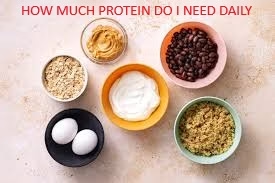
Sea Moss Is Having a Moment — But Is It Worth the Hype
You’ve probably seen it everywhere, sea moss, also known as Irish moss or Chondrus crispus, is popping up in smoothies, supplements, and skincare routines. But what’s the real deal with this red seaweed from the ocean floor? Is it as amazing as it sounds, or just another passing trend? Let’s see the top 10 benefits and risks of sea moss more clearly so that you can make up your mind about whether or not it belongs in your daily life.

1. A Heart-Healthy Helper
Sea moss is packed with fiber, and that’s a win for your heart. Fiber can help manage blood sugar, lower cholesterol, and even reduce blood pressure. According to registered dietitian Beth Czerwony, sea moss might help lower bad cholesterol and blood pressure, both big contributors to heart disease. So, if you’re looking to show your heart some love, sea moss could be a simple, natural way to do it.

2. A Weight-Management Tool
Struggling to maintain or lose weight? Sea moss could come to your aid. It’s rich in fiber, so it keeps you full for longer, easy to resist unwanted snacking. It’s also low in calories, which makes it an intelligent selection if you’re monitoring your intake.

3. Promotes a Healthy Thyroid
Your thyroid requires iodine to make hormones that have an influence on everything from energy to metabolism. Sea moss is a natural source of iodine, which can come in handy if your diet is not supplemented with it. However, excessive amounts of iodine will be bad for your thyroid, so be sure to consult with your doctor first, particularly if you already have a thyroid issue.

4. Good for Gut Health (Maybe)
Your gut is inhabited by a complete community of bacteria that keep everything in working order. Sea moss is a prebiotic, serving up food for those beneficial bacteria and keeping your gut balanced. Some animal research even indicates it enhances digestion. But here’s the thing: sea moss also includes carrageenan, which has been implicated in digestive problems in individuals with conditions such as IBD. It’s beneficial for some, it might not be as easily tolerated by others.

5. Increases Your Immune System
A healthy gut equals a healthy immune system, and sea moss might bring a double whammy with its antioxidants and iron. Initial animal studies suggest it might be able to assist yourbody in fighting off disease, and antioxidants have been proven to assist in defending cells against damage. That being said, we do not have enough human trials yet to know its effect.

6. Aids Muscle Recovery
If you exercise on a regular basis, sea moss may be worth incorporating into your after-gym routine. It includes taurine, an amino acid that can aid in muscle repair, and around 6 grams of protein per 100 grams. Although it’s not a replacement for sleep and proper nutrition, it may provide your muscles with a bit of added assistance.

7. May Have Anti-Cancer Potential
Thanks to its antioxidant properties, sea moss may be able to protect your cells from damage caused by free radicals, unstable molecules that are associated with aging and disease. Certain laboratory tests even propose that it could have anti-tumor properties. More research is required before we can make any sweeping statements about sea moss preventing cancer.

8. May Help Regulate Blood Sugar
Sea moss is being looked at for its potential in treating diabetes. Its fiber may slow sugar absorption, keeping blood sugar levels more stable. Some laboratory tests on seaweed have some potential to improve blood sugar control. Experts Dr. Raj Dasgupta and Dr. Edmond Hakimi, however, advise against there not being enough evidence available at present to recommend the use of sea moss as therapy. Consider it as a possible supplement, and not a cure.

9. Men’s and Women’s Health Benefits
Sea moss may have some gender-specific benefits. For women, the fiber content can regulate hormones and ensure regular menstrual cycles. It also has calcium, which is excellent for bone health, especially after and during menopause. For men, the zinc level can support healthy testosterone production and sperm quality.

10. Side Effects and Potential Risks
And now for the downside. Sea moss absorbs minerals in its setting, so it may harbor heavy metals such as lead, mercury, and arsenic. Excessive intake may result in metal toxicity or excess iodine, causing anything from gastrointestinal upset to severe thyroid disturbance. Carrageenan, a chemical found in sea moss, may also cause gastrointestinal distress or allergy in individuals. If you’re pregnant, breastfeeding, have thyroid issues, IBD, or allergies to iodine or seaweed, it’s best to check with your doctor before trying it.

Who Should Probably Skip Sea Moss
Sea moss isn’t for all. If you have a thyroid issue, are breastfeeding or pregnant, have inflammatory bowel disease (IBD), or are allergic to seaweed or iodine, you may want to avoid it. Sea moss will also interfere with some medicines, such as thyroid medicine, blood thinners, and immunosuppressants. Always read the label and consult your physician if unsure.

How to Take Sea Moss (and What to Consider)
Sea moss is available in all sorts of forms, raw, gel, capsules, powders, even gummies, so there’s no excuse not to find one that’s convenient for you. There is no recommended dose, officially, but research indicates that 3 to 4 grams dried sea moss per day is safe for most healthy adults.
If you’re trying it for the first time, start with a small amount and see how your body responds. Everyone’s different, and it’s always better to go slow, especially with supplements that contain iodine. And remember: no supplement can replace a well-balanced, nutrient-rich diet. Sea moss may offer some health perks, but it works best as part of a broader, healthy lifestyle. If you’re thinking of adding it to your routine, check in with your healthcare provider to make sure it’s the right fit for you.













